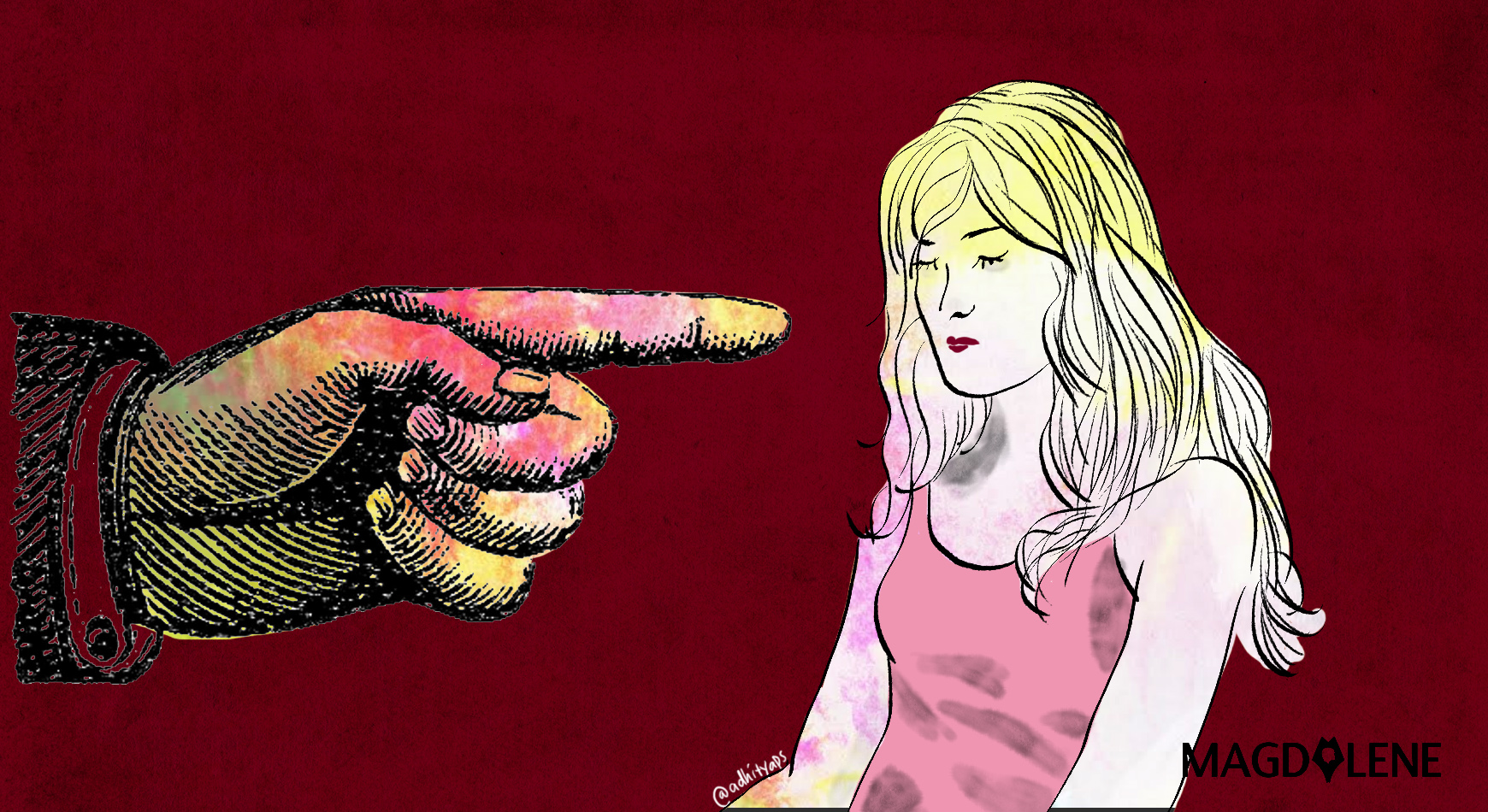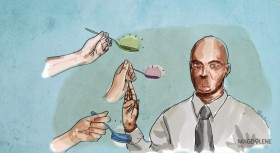After Christine Blasey Ford gave her public testimony to a Senate committee on Sept. 27 detailing her allegation of the sexual assault against her in 1982 by the U.S. Supreme Court nominee Brett Kavanaugh, there has been an intense debate on social media. It grew even more heated that Kavanaugh has been confirmed as a Supreme Court Justice.
People who believed in her applauded her for being brave and honest. They showed their support for her coming out with remarks like “I stand with #christineblaseyford and all women who have been sexually assaulted.” But there were also others who doubted, even ridiculed her, accusing her of faking her allegation, denigrating her “poor acting skills”, and maintaining that there was a political agenda lurking behind her allegation.
I am not writing to tell you whether her allegation is true or false, I am writing to discuss about the bigger picture of the #MeToo movement, about the long and ever-increasing list of high-profile men accused of sexual assaults. I am writing to convince you that while claims should undeniably be further investigated, I think it’s time to stop treating and blaming victims like they are the sole cause of the issue.
Recently I was having lunch with my female co-workers, when one of them said she was having a bad day because something that happened to her earlier. While waiting for a client, a stranger came up and began to expose his genital to her. She panicked and ran to seek help. She told another woman who worked there about the incident, but the woman just shrugged and told my coworker that he had been around for quite some time. Just be more careful and aware next time, the woman told her.
Our conversation developed and by the end of the lunch, the nine of us did not merely finish eating our food, we had also shared each other our stories of encountering sexual misconduct and assault. Somewhere it seemed like the right time to make those experiences public, and we found solace in sharing it.
What was shocking was not just that we experience it on our everyday life as an adult, but also the fact that each of us had experienced sexual misconduct and assault long before we even reached puberty. A public transportation’s driver masturbated next to a girl in elementary school outfit, a man in motorbike grabbed a girl’s bottom as she walked down the street, random men made comments and sexualized a girl’s physical appearances in public sphere – the amount and varieties of the sexual assault and harassment are insane!
Most victims of sexual assaults never speak out about their experience, but that does not make the experience less real, or their feelings less valid. There are endless reasons why women do not report sexual assaults. Remembering bad things lead to reliving the bad memories that we have no absolute control upon, let alone talking or discussing about it. Each experience may differ, and how each and every victim react to it varies. The law may have legally defined and classified sexual assault, including the degrees of the assaults and and punishments, but experiences are not something you can easily quantify.
Every person has a different coping mechanism and ways to deal with trauma. While some may remember the details vividly, others may unconsciously forget horrific moments in order to preserve their sanity. That does not mean one of them is lying. They have all the right to own their own truth. To judge that other people’s statement is irrational just because you think you would behave and react differently if you were in her position is just unacceptable.
Victim blaming does not necessarily have to be a direct statement of how a sexual misconduct happened because it was the victim’s mistake.
“Why do you suddenly think that it is important to bring up what happened to you 36 years ago?” is an act of victim blaming. Because an assault is an assault even if it happened long ago, even if no one has ever speak about it. The fact that it happened is all that matters. Besides, sexual assault victims should be able to decide for themselves when and whether their private experience is made public, as stated in Ford’s prepared testimony.
“He was drunk at that moment” is an act of victim blaming. Because neither a drunken woman nor a drunken man means consent.
“You don’t have to upload it in social media, we can talk about it and solve it in private” is an act of victim blaming. Because it implies that it is okay to forcefully raid into someone’s private space without her consent, yet it becomes a problem when she makes it public.
“He doesn’t deserve this blow up, it could ruin his personal life and career” is an act of victim blaming. First, it implies that he doesn’t deserve the blow-up, yet the victim deserves to be assaulted; and, second, it ignores the fact that the sexual assault had already ruined her life since it happened.
Most of the times, when women encounters sexual misconduct, they initially feel an overwhelming shame and fear, yet not enough of anger. They become vulnerable and if they could forget the experience, I’m sure they would. But later on, some grow brave as they decide that they have to expose their stories to public. And that is exactly why they deserve our support and empathy.
Therefore, instead of asking, interrogating, making excuses, or trying to rationalize the perpetrator or the victim’s actions, it would be so much more productive for us to just acknowledge the mistake and admit that such act is wrong, no matter who the perpetrator or the victim was. It would be so much more productive to apologize and get legal treatment accordingly. Ultimately, it would be so much more productive to change into a better person and actually stick to that commitment.
Having and acknowledging a bad past does not necessarily mean you are entirely a bad person. Trying to be a decent human being by advocating against all the vile things that you have long done does not make you a hypocrite. Everyone deserves forgiveness and a chance to change. Growth is a concept that we have to learn and understand so that we could embrace it. After all, the purpose of #MeToo and basically all the feminist movement is to create a better world. And a better world could be accomplished faster and smoother if we are collectively willing to be a better person than we were before.
Vita Kartika Cahyarani is a Surabaya born and raised Communication generalist. She believes in life-long education and the power of process. She writes, contemplates, and criticizes stuff on semanticsatiation.blogspot.com. Say hi, she’s @vitdgaf on each and every social media platform.








Comments